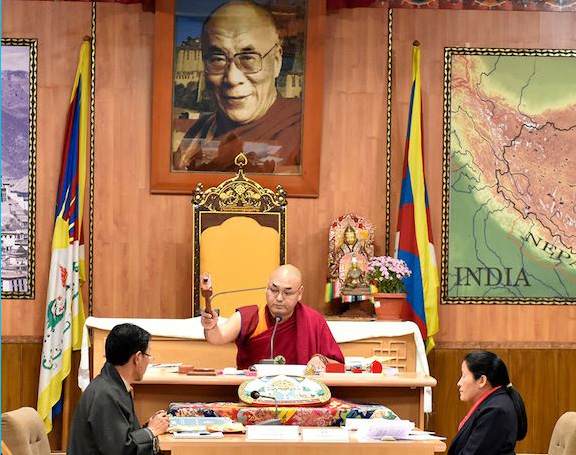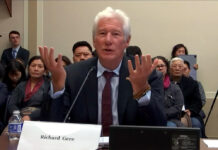
(TibetanReview.net, Mar25, 2018) – The budget session for the fiscal years Apr 2018-19 of the 16th Tibetan Parliament in Exile concluded on Aug 24. During its 11-day session, the parliament in exile debated and approved an over Rs 2.65 billion budget for the Central Tibetan Administration for the coming financial year.
The parliament in exile also approved by majority-vote, Canada-based Dr Pema Yangchen as the CTA’s new education minister. However, no name was proposed for a fulltime minister for the Department of Information and International Relations. Sikyong Lobsang Sangay currently doubles as that minister.
The session was dominated to a substantial measure by discussions on the much-controverted removal of the CTA representative at the Office of Tibet in Washington, DC, by a decision of the CTA cabinet in Nov 2017. That controversy and the acrimony surrounding it still linger despite a heated debate within the parliament in exile and a protest outside it. Those protesting over the issue during the parliamentary session vowed to carry forward their fight.
Sikyong Lobsang Sangay reiterated his position that the matter could only be resolved by recourse to judicial process, suggesting that the issue had become partisan, even if not of the provincial or sectarian kinds.
During the session Sikyhong Lobsang Sangay also said the question whether former Kalon Tripa of the CTA Prof Samdhong Rinpoche did or did not visit China in November last year was a personal matter and therefore did not warrant a discussion in the parliament. Some news reports had said Prof Samdhong had visited China and met with Chinese officials but this was reported to have been denied by the professor himself.
In this connection Sikyong Lobsang Sangay said that while it was understandable that Tibetans would visit their homes in Chinese ruled Tibet after gaps of many years, it was politically and morally incumbent on anyone who do so and meet with Chinese officials to discuss Tibetan issues to inform his administration about it. He also said the Dalai Lama’s recent decision to put off overseas visits was entirely his own and had nothing to do any possible recently meeting that Prof Samdhong Rinpoche may have had with Chinese officials.
Serious problems faced by ordinary Tibetans with regard to the online registration, renewal, transfer, or surrender of their Foreigner’s Registration and Residence Permit (RC) as well as their travel document called the Identity Certificate were raised by members. The CTA gave the same responses it did during the previous parliament session, namely that it was actively taking up the matter with the relevant government of India departments and that discussions were ongoing.
But asked why it refuses to certify Tibetans who do not received any CTA benefits, as being demanded by the concerned Foreigners Regional Registration Offices of the government of India as condition for the acceptance of the surrender of RCs held by Tibetans who are otherwise entitled to passports, the CTA replied that it did not want to encourage Tibetans to take Indian citizenship.
Several High Courts of India have recently ruled that Tibetans born in the country from Jan 26, 1950 to Jun 30, 1987, and their offspring, were citizens by birth and entitled to passports. Only few Tibetans have sought to assert that right. Nevertheless, many of them remain unable to surrender their RC and therefore to apply for a passport due to this and other intractable bureaucratic hurdles.
Speaker Khenpo Sonam Tenphel lauded what he felt to be a slightly improved quality of the debate during the current session.





